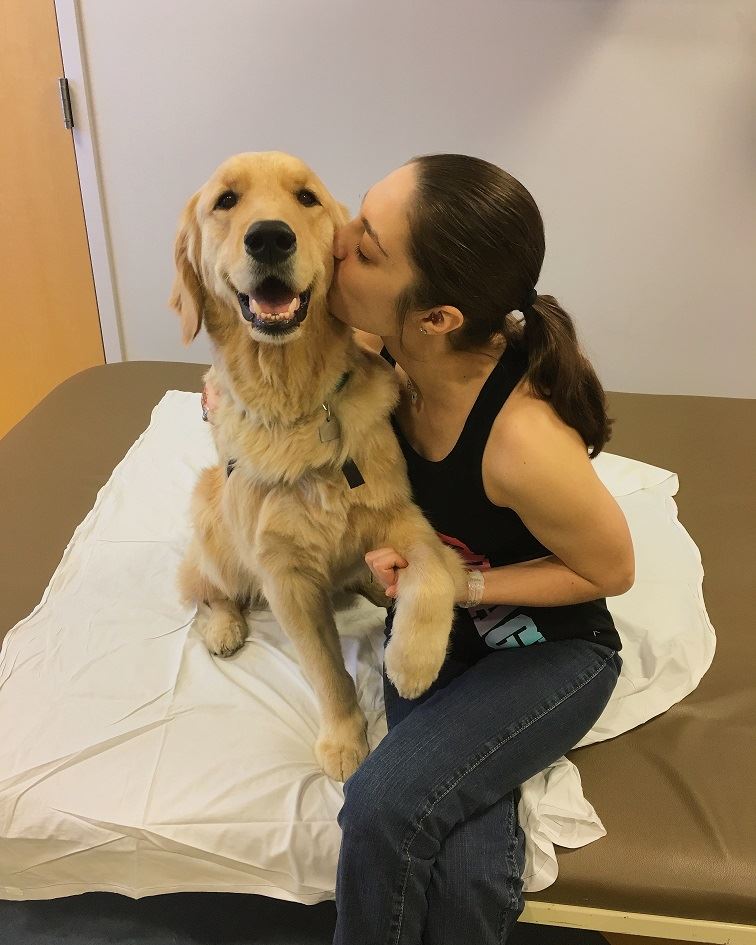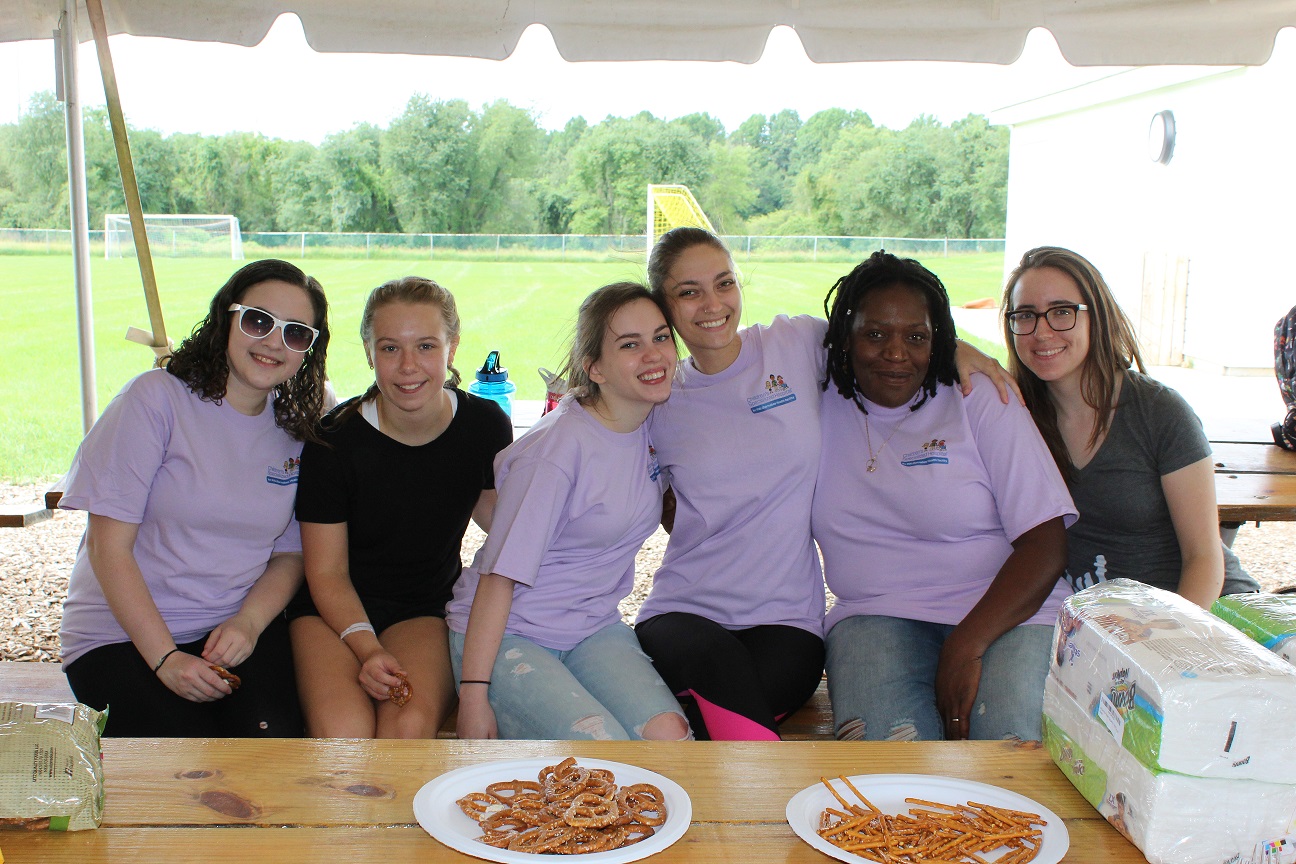Working Through the Pain: How a brave young woman got her life back, with the help of Children's Specialized Hospital

When Katherine Bentley, MD, Director of the Pain Program at Children's Specialized Hospital, first met Harley Bourgeois, the 20-year-old had been confined to a wheelchair for more than a year.
Harley had traveled with her mother from their North Carolina home to New Brunswick so that the young woman could be evaluated for the hospital's Chronic Pain Management Program. It had been six years since Harley had been diagnosed with complex regional pain syndrome (CRPS), a chronic condition that is thought to be caused by an injury to the nervous system, and that grows more excruciating over time.
"It was a long way to come just to be evaluated, but we had to meet her, and she had to know what she would be getting into if she came back for the program," Dr. Bentley said. "It's a huge commitment. But she was ready for it."
Harley's problem started when, as a healthy middle-schooler, she had an X-ray for a minor injury that caught a suspicious abnormality on her right femur. An oncologist removed the lump, and all seemed well - but the aching in Harley's right leg never went away.
One day, the horse she was riding bucked, shooting her into the air, she landed on the same aching femur. For many months thereafter, she and her parents traveled from doctor to doctor as the pain escalated. By the time Harley got to Children's Specialized Hospital, the slightest touch - even a breeze - sent pain shooting through her body.
 "CRPS is a hard diagnosis because it's a diagnosis of exclusion. You rule out everything else, test by test," Dr. Bentley said. "While we don't know everything about why a youngster might be experiencing this chronic pain, we know that intensive therapies and multidisciplinary treatment plans can help them." Harley worked with a dedicated team of physical therapists, occupational therapists, psychologists, child life specialists, and physician/advanced practice nurses.
"CRPS is a hard diagnosis because it's a diagnosis of exclusion. You rule out everything else, test by test," Dr. Bentley said. "While we don't know everything about why a youngster might be experiencing this chronic pain, we know that intensive therapies and multidisciplinary treatment plans can help them." Harley worked with a dedicated team of physical therapists, occupational therapists, psychologists, child life specialists, and physician/advanced practice nurses.
The Chronic Pain Management Program is not for the faint of heart. "Harley was weaned off her pain meds, and had hours of therapy every day, six days a week," Dr. Bentley said. The goal of therapy is to retrain the brain to decrease sensitivity to pain. Patients can take advantage of aqua therapy in the hospital's pool, as well as cutting-edge technology like the ZeroG, a dynamic support harness that helps people walk without using their full body weight. The program also emphasizes mental preparation for re-entering the normal life that so many have lost. A typical day would include meditation, individual and group psychology sessions, peer mentoring and evening recreation.
Over the course of eight demanding weeks, Harley made progress: mastering the parallel bars, walking up a stair, walking with a walker and the ZeroG harness. Finally, one day when her mother visited, Harley surprised her by walking to her without assistance, and giving her a big hug.
That was in March 2018. Harley is now a student at North Carolina State University, fulfilling her dream of studying livestock and poultry management. She still makes time to visit her friends and former therapists at Children's Specialized. "The takeaway of this story is, 'never give up hope,'" Dr. Bentley said. "Harley had been in such pain and dysfunction for a long time, but she kept looking for a way to get better. And thanks to her perseverance and commitment, she did."